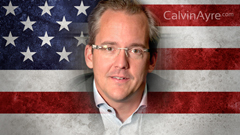 Poker is an American game, and it is heartening to see a regulated online poker market emerging in some states.
Poker is an American game, and it is heartening to see a regulated online poker market emerging in some states.
Delaware, New Jersey and Nevada have all passed bills regulating online poker and on May 1st UltimatePoker in Nevada became the first online poker room regulated in the US. Other states are in different stages of doing something similar, e.g. Pennsylvania, Massachusetts and Mississippi. There is also a new federal online gambling bill on the table, recently introduced by Peter T. King, Republican Congressman from New York and even talks about another federal bill, but we know from previous attempts how difficult it is to get these through Congress.
If we start by looking at what different states are doing, it is obvious that for states with small populations, like Delaware and Nevada, player liquidity will be a problem—in the case of Nevada it already is. Many people argue that inter-state sharing of liquidity would be the solution but as always when money is transferred across borders legislators will find it hard to agree on the rules. Between big states and small states there is also the classic poker network conflict: Why would bigger operators, or in this case states, want to share their liquidity with smaller operators/states? With all the ring fencing many poker networks have introduced we know the answer to that question: They don’t. A fair rake distribution model is important to bridge this gap but how do you explain that to legislators?
So, there are two major hurdles to overcome here. One is for legislators and state tax authorities to agree across state borders, one is to convince bigger states to even want to share liquidity with smaller states in the first place. My prediction is that poker operators in smaller states will struggle but if they are allowed to offer other products that do not rely on player liquidity, e.g. online casinos, even operators in small states can be successful. The potential market size for online casinos is much bigger than for online poker rooms. Of the three states mentioned above Delaware and New Jersey will allow online casino games but Nevada will not. Online casino play is also part of Peter T. King’s federal bill but that will make it even less likely, in my opinion impossible, for that bill to pass.
Nevada, with a population of only 2.7m, is instead hoping that they can persuade the big neighbour California to join their player liquidity and that would, of course, be a dream scenario for Nevada but I cannot see that happening, either. There would be nothing in it for California, especially as they have well documented financial problems of their own to solve.
California has a population of 37m people, and The Golden State does not have to worry about player liquidity. If California were a country it would be the 12th biggest economy in the world. If California were to regulate online poker, and there is talk about it, it would create a California Gold Rush for the online poker industry. Everybody would want to have a piece of the action. If poker operators would do things right from the start and launch with a recreational poker model instead of trying to implement it later, California alone is potentially a billion dollar market.
Inevitably, I would love to bring the Recreational Poker Model to the US and may well decide to make a fundamental change to my career. Bodog gave me a great opportunity to bring anonymous tables to the world but with that now running effectively I am tempted to drive a start-up company, based in The Golden State, which will be a B2B software provider for the regulated US online poker market. Already competitive, of course, but now that the model is a proven success I want to bring it to poker’s homeland too and nobody else is offering anything tangibly different like this.
Jonas Ödman
former President, Bodog Poker Network
